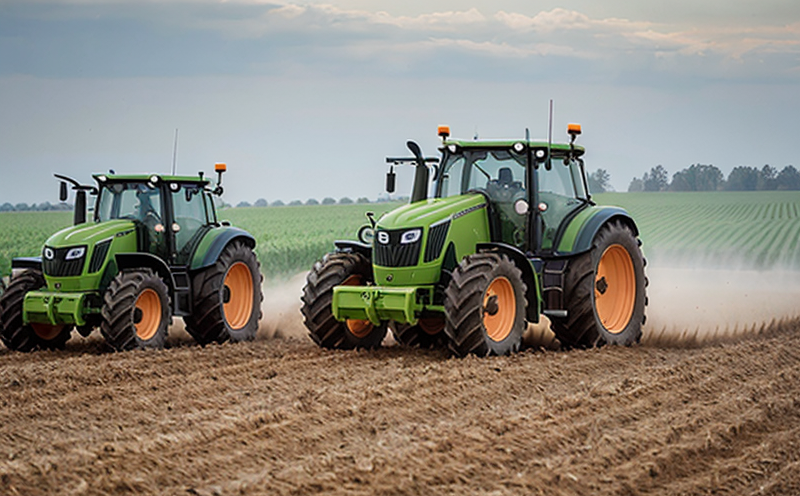
-
Agricultural Equipment Certification-
Technology Integration in Agricultural Equipment Certification
We provide comprehensive solutions designed to help our clients mitigate risks, enhance performance, and excel in key areas such as quality, health & safety, environmental sustainability, and social responsibility.
Discover
For many years, our organization has been operating successfully, boasting modern laboratories that meet international standards. These laboratories are equipped with the latest technology devices and equipment, and we have built a strong team of experienced and trained personnel to operate them.
DiscoverWelcome to Eurolab, your partner in pioneering solutions that encompass every facet of life. We are committed to delivering comprehensive Assurance, Testing, Inspection, and Certification services, empowering our global clientele with the ultimate confidence in their products and processes.
Discover
-
Agricultural Equipment Certification-
Technology Integration in Agricultural Equipment CertificationTechnology Integration in Agricultural Equipment Certification: A Comprehensive Guide
The agricultural industry has witnessed significant advancements in technology over the years, transforming farming practices, improving crop yields, and enhancing efficiency. One critical aspect of this technological integration is the certification of agricultural equipment, which ensures that machines are designed, built, and tested to meet specific standards for safety, performance, and environmental sustainability. This article delves into the world of technology integration in agricultural equipment certification, exploring its benefits, challenges, and future prospects.
Benefits of Technology Integration in Agricultural Equipment Certification
The integration of technology in agricultural equipment certification offers numerous benefits, including:
Reduced labor costs
Improved accuracy and consistency
Enhanced efficiency in certification processes
Initial investment costs
Data security concerns
Compatibility with existing systems
Example 2: Real-Time Data Analytics
Improved accuracy in predicting maintenance needs
Enhanced decision-making capabilities for farmers and manufacturers
Reduced costs associated with manual testing and inspection
QA Section
Q: What are the primary challenges in implementing technology integration in agricultural equipment certification?
A: The primary challenges include data security, equipment compatibility, and ensuring seamless communication between different devices and systems.
Q: How can AI-powered systems improve efficiency in certification processes?
A: AI-powered systems can automate tasks such as testing, inspection, and analysis, reducing manual labor costs and improving accuracy and consistency.
Q: What are the benefits of using IoT in agricultural equipment certification?
A: The widespread adoption of IoT enables real-time monitoring and control of equipment, further enhancing efficiency and reducing maintenance costs.
Q: How can technology integration help ensure environmental sustainability in agricultural equipment?
A: Technology integration allows for the optimization of equipment design and functionality, ensuring that machines are built to meet specific performance criteria related to fuel efficiency, emissions, or water usage.

Automotive Compliance and Certification
Automotive Compliance and Certification: Ensuring Safety and Efficiency The automotive industry is ...

Food Safety and Testing
Food Safety and Testing: Ensuring the Quality of Our Food As consumers, we expect our food to be sa...

Renewable Energy Testing and Standards
Renewable Energy Testing and Standards: Ensuring a Sustainable Future The world is rapidly transiti...

Construction and Engineering Compliance
Construction and Engineering Compliance: Ensuring Safety, Quality, and Regulatory Adherence In the ...

Electrical and Electromagnetic Testing
Electrical and Electromagnetic Testing: A Comprehensive Guide Introduction Electrical and electrom...

Product and Retail Standards
Product and Retail Standards: Ensuring Quality and Safety for Consumers In todays competitive marke...

Environmental Simulation Testing
Environmental Simulation Testing: A Comprehensive Guide In todays world, where technology is rapidl...

Energy and Sustainability Standards
In today’s rapidly evolving world, businesses face increasing pressure to meet global energy a...

Agricultural Equipment Certification
Agricultural equipment certification is a process that ensures agricultural machinery meets specific...

Pressure Vessels and Installations Testing
Pressure Vessels and Installations Testing Pressure vessels are a critical component of various ind...

Healthcare and Medical Devices
The Evolution of Healthcare and Medical Devices: Trends, Innovations, and Challenges The healthcare...

Aviation and Aerospace Testing
Aviation and Aerospace Testing: Ensuring Safety and Efficiency The aviation and aerospace industr...

NEBS and Telecommunication Standards
Network Equipment Building System (NEBS) and Telecommunication Standards The Network Equipment Bu...

Lighting and Optical Device Testing
Lighting and Optical Device Testing: Ensuring Performance and Safety Lighting and optical devices a...

Chemical Safety and Certification
Chemical safety and certification are critical in ensuring the safe management of products and proce...

Transportation and Logistics Certification
Transportation and Logistics Certification: A Comprehensive Guide The transportation and logistics ...

Cosmetic Product Testing
The Complex World of Cosmetic Product Testing The cosmetics industry is a multi-billion-dollar ma...

Hospitality and Tourism Certification
Hospitality and Tourism Certification: Unlocking Opportunities in the Industry The hospitality and ...

Railway Industry Compliance
Railway Industry Compliance: Ensuring Safety and Efficiency The railway industry is a critical comp...

Environmental Impact Assessment
Environmental Impact Assessment: A Comprehensive Guide Environmental Impact Assessment (EIA) is a c...

Battery Testing and Safety
Battery Testing and Safety: A Comprehensive Guide As technology continues to advance, battery-power...

IT and Data Center Certification
IT and Data Center Certification: Understanding the Importance and Benefits The field of Informatio...

Pharmaceutical Compliance
Pharmaceutical compliance refers to the adherence of pharmaceutical companies and organizations to l...

Electromechanical Safety Certification
Electromechanical Safety Certification: Ensuring Compliance and Protecting Lives In todays intercon...

Trade and Government Regulations
Trade and government regulations play a vital role in shaping the global economy. These regulations ...

Military Equipment Standards
Military Equipment Standards: Ensuring Effectiveness and Safety The use of military equipment is a ...

MDR Testing and Compliance
MDR Testing and Compliance: A Comprehensive Guide The Medical Device Regulation (MDR) is a comprehe...

Industrial Equipment Certification
Industrial equipment certification is a critical process that ensures industrial equipment meets spe...

Consumer Product Safety
Consumer Product Safety: Protecting Consumers from Harmful Products As a consumer, you have the rig...

Fire Safety and Prevention Standards
Fire Safety and Prevention Standards: Protecting Lives and Property Fire safety and prevention stan...